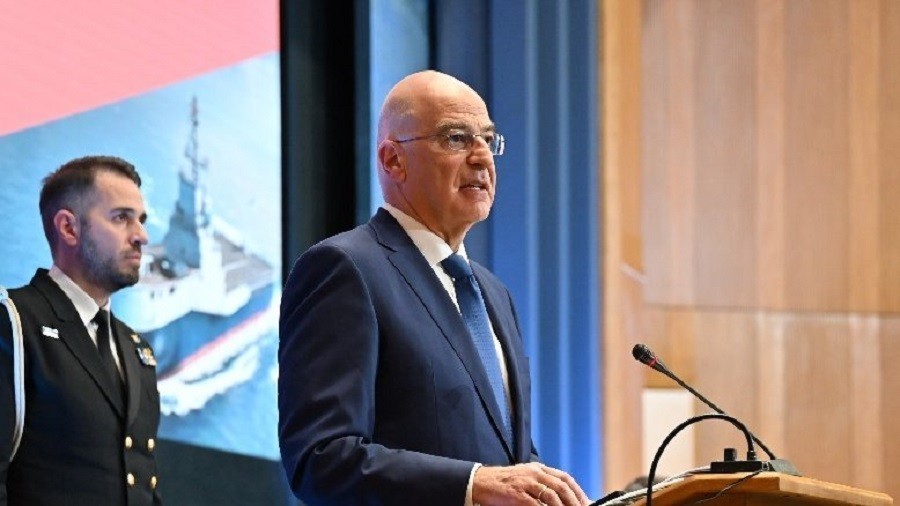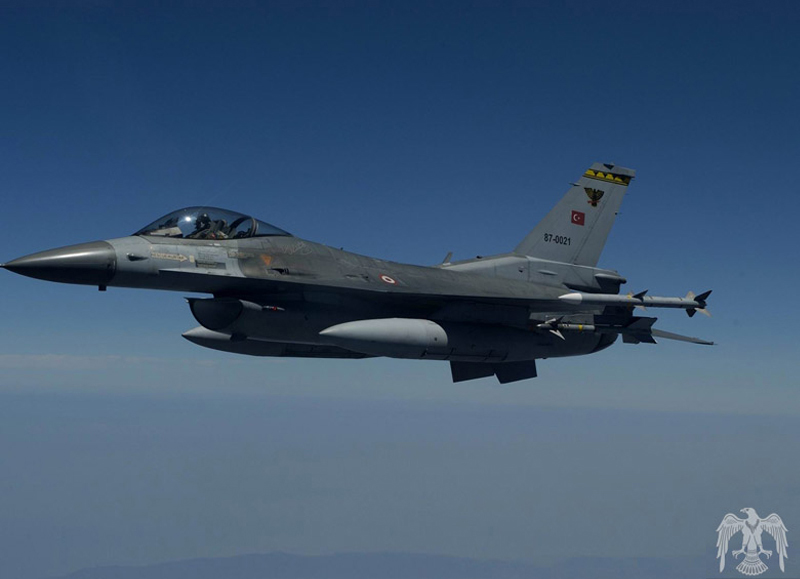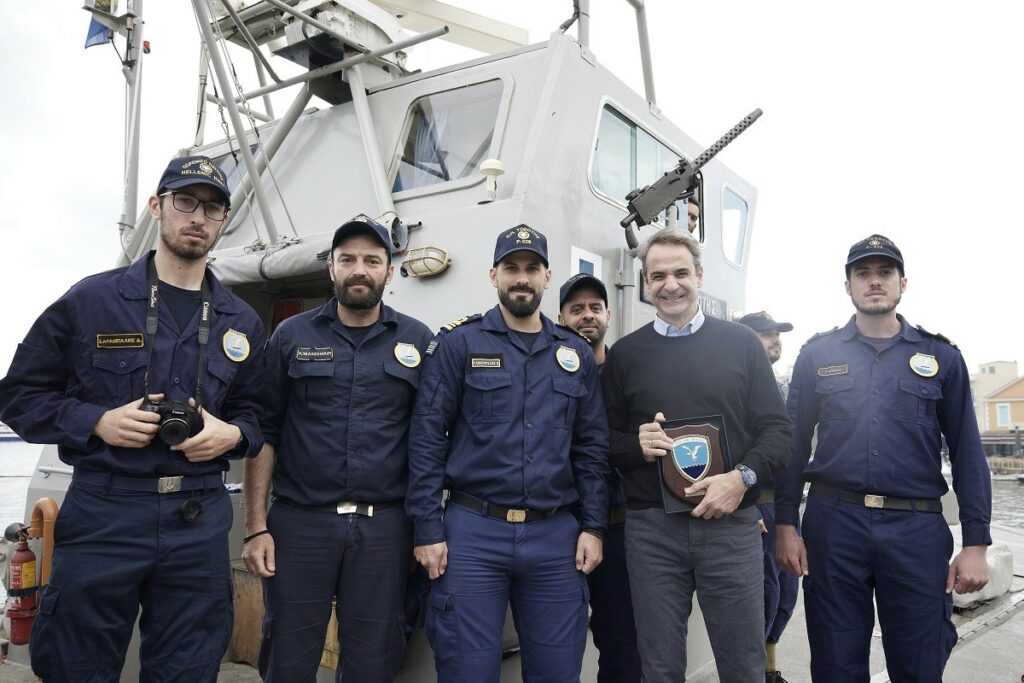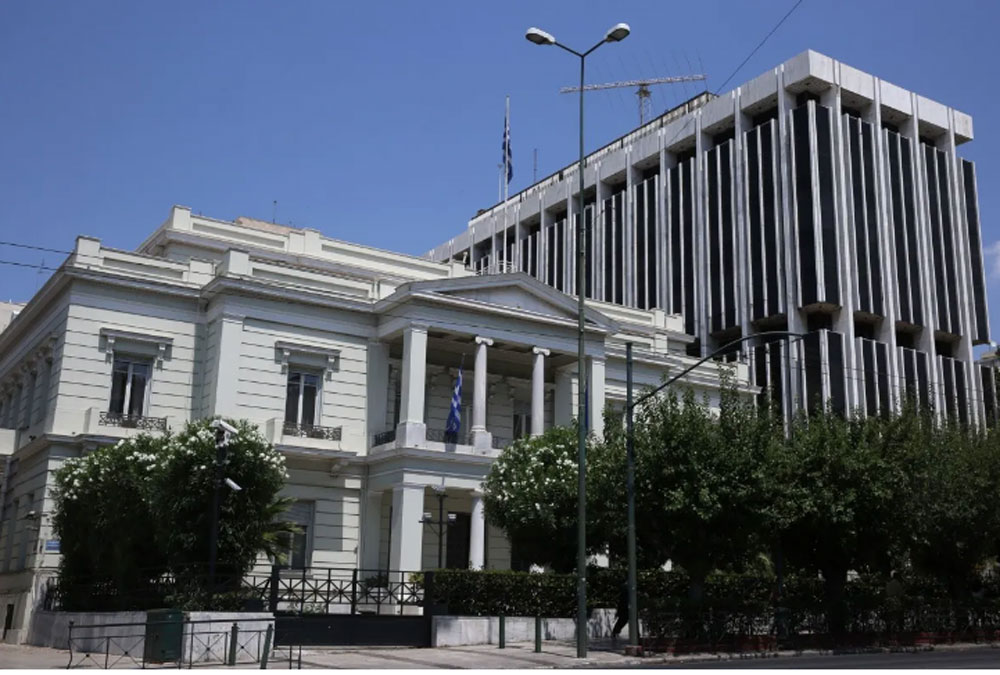
Is the ghost of Chamberlain still over the Hellenic and Cypriot Skies? We are thirsty for peace…

FILE PHOTO: Μαχητικό της τουρκικής πολεμικής αεροπορίας. Πηγή: Turk Hava Kuvvetleri
The destiny of humanity is shaped by the lessons, we learned (or we did not) from History. Unfortunately, History is the only professor regarding politics.
- The prominent professor at Princeton University, Robert Gilpin once said ”I know nothing more than Thucydides knew 2,5 thousand years before”. This quote depicts the eternal wisdom of Political Realism – the main explanatory theory in world politics. As Hellenes and Cypriots we keep shaping our history through centuries. The substantial question is: Have we learned our lessons from History? Many people that involve with Hellenic and Cypriot foreign policy hasn’t learned yet.
The former Prime Minister of the UK, Neville Chamberlain is a historic figure. He was in power in the edgy era (1937-1940).He was without a single doubt a servant of his country but he was described by historians as the person who shaped the wrong policies towards Germany at the wrong time. The Strategic Theory explains to us several strategies and tactics that states regularly adopt. One of them is the Appeasement. The appeasing policy had as its main target to ease Germany’s aggression. It was clear that Neville Chamberlain believed that WWII could have been avoided. This kind of strategy towards Germany drove into the calamity, many European states.
Had Chamberlain bad and malicious intentions? Was he a traitor?
- Absolutely not. The problem was a matter of intention itself. Politics are not been shaped by intentions, good or bad. Politics are shaped because the decision-makers are constantly in search of peaceful formulas that are placed by the balance of power. Paradoxically, (for the idealists) peace comes when we have ensured that the potential opponent, finds too expensive the war against us. The cost-benefit analysis surrounds the attitude of power balancing.
The successor of Chamberlain, Winston Churchill is wrongly well known for his courage. He followed the realistic doctrine because he understood the nature of the conflict which is included in Latin words ”si vis pacem para bellum”. And again, we can find a serious problem that idealists couldn’t afford to accept. A realist doesn’t desire a conflict. Because of this neglect, he secures his state. The appeasement sends the wrong signal. The potential opponent won’t perceive our good intentions as respect for his interests. He unfolds our appeasing signal as a weakness. Power and its usage, are at the center of politics.
- Nowadays, in Athens, the narrative of Chamberlain is still strong. Chamberlain’s ghost is moving back and forth over the Hellenic sky. Their mistake is the same that Chamberlain made with Germany during WWII. They believe that Turkey could be satisfied if Greece and Cyprus could accept to allocate their hydrocarbons with Turkey. That is a misperceived message. Turkey has been building up its violating policy towards Greece for seven decades and because of Hellenic appeasement, Turkey augmented its violations and its illegal requests.
Thomas Schelling once gave to us a remarkable theory of negotiating. He stressed out that the valid and accurate usage of threats could bring to a decision-maker the benefit he desires without the usage of power. Simultaneously, peace is more possible because of the reliability of the threat. The revisionary state checks the veracity of the threat and afterward can calculate that the cost of a potential strike, is bigger than the benefit it aspires to gain. That is how it worked during the whole Cold War era. Using that mechanism, we avoided nuclear calamity as humanity. Especially the USA, implemented during the Cold War Era, at least three forms and aspects of containment. To conclude, if we want to achieve a peaceful relation with Erdogan’s Turkey we should raise the Turkish potential strike’s cost.
To cut the long story short, we need Churchill’s attitude.
- Had we ever a decision-maker with this attitude? Tassos Papadopoulos was the one that prevented a war in Cyprus and only that. After he turned down the Annan Plan, the windows of opportunity opened for Hellas and Cyprus. All these trilateral-partnerships in the Eastern Mediterranean couldn’t be flourished without Papadopoulos’ policy. Hellas and Cyprus have already built up regional cooperations with key-states in the region, such as Israel, Egypt, Jordan, and Lebanon. As Hellenism, we chose the right side regarding the energy security of the region. We achieved to protect our territorial integrity and show a cooperative spirit in an era of turmoil in the Eastern Mediterranean.
So, what’s wrong with Papadopoulos’ ”No” to Annan Plan? Both in Hellas and Cyprus, there are supporters of appeasing narratives because they can’t grasp Turkey’s vision. Only a part of that vision we witnessed in Syria in which Turkey invaded, last October. So, is there another argument that is complimentary with the central one (that to deter, is more beneficial than to appease)? Being by the next argument means that we should avoid every sentimental approach regarding conflict management. The timing is always critical if we want to fully examine a policy.
At the same time in which appeasement’s supporters are pointing out their arguments that have already driven Hellenic foreign policy in a dead-end, the unique superpower of international politics officially recognizes the Armenian Genocide, votes for the sanctions against Turkey and adopts the Eastern Mediterranean Security and Energy Act of 2019. Regarding this Act, Hellas and Cyprus received a ”geostrategic promotion” from the USA.
The appeasing argument is not only inaccurate but also, unsynchronized with all these things that happen at the regional and international level. Hellas and Cyprus should shape a strategy to deter Turkish aggression. As Hellenism, we believe in a stable and peaceful Eastern the Mediterranean in which the benefits will be allocated by the rule of international law, deterring Turkish violations and provocations that destabilize a critical region as the Eastern Mediterranean is.
Deterring illegal activities does not mean that we desire a conflict escalation. It means that we are thirsty for peace.
(*) Research Fellow – HALC, Ph.D. Cand. (Hellenic-American Relations after Cold War Era).

